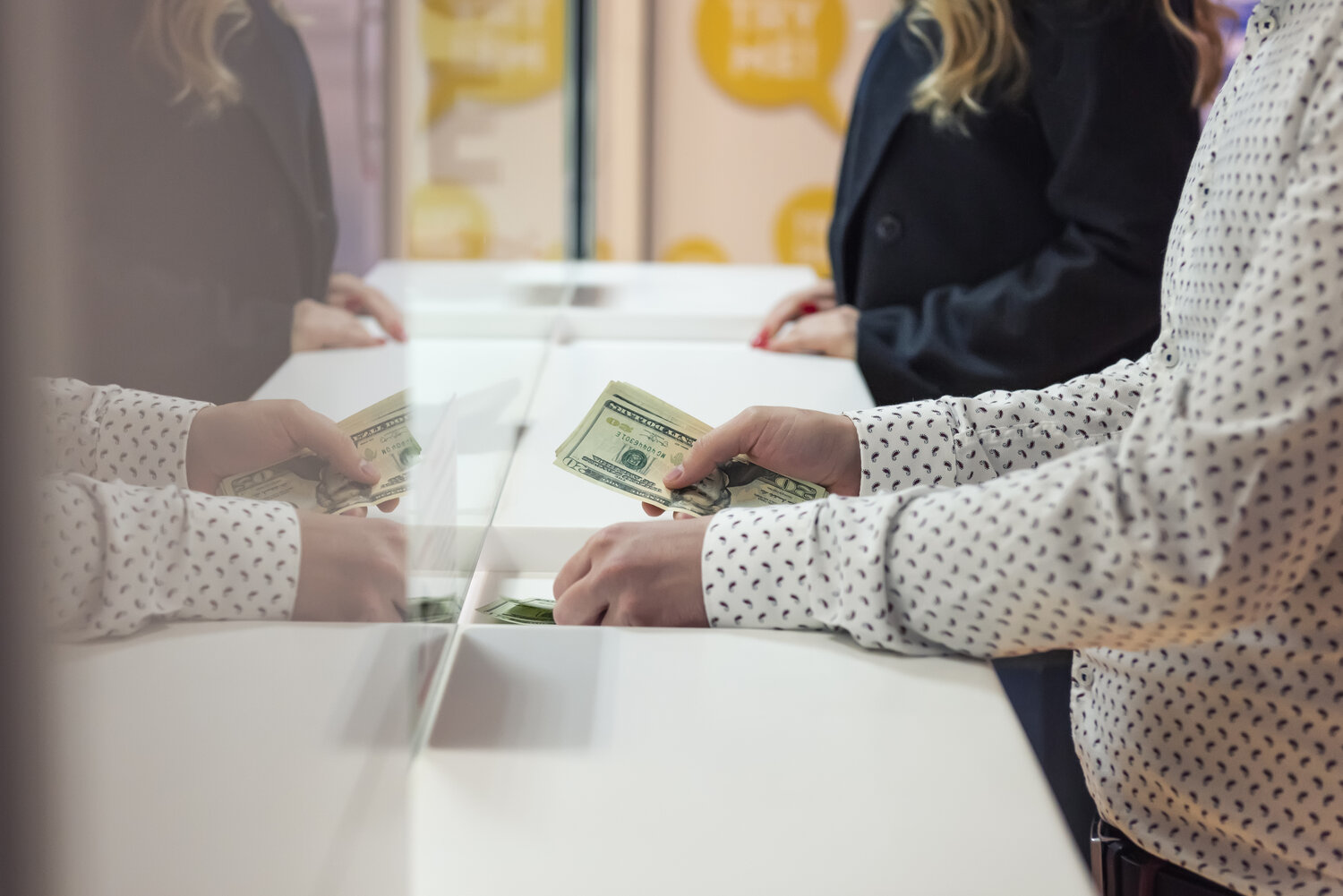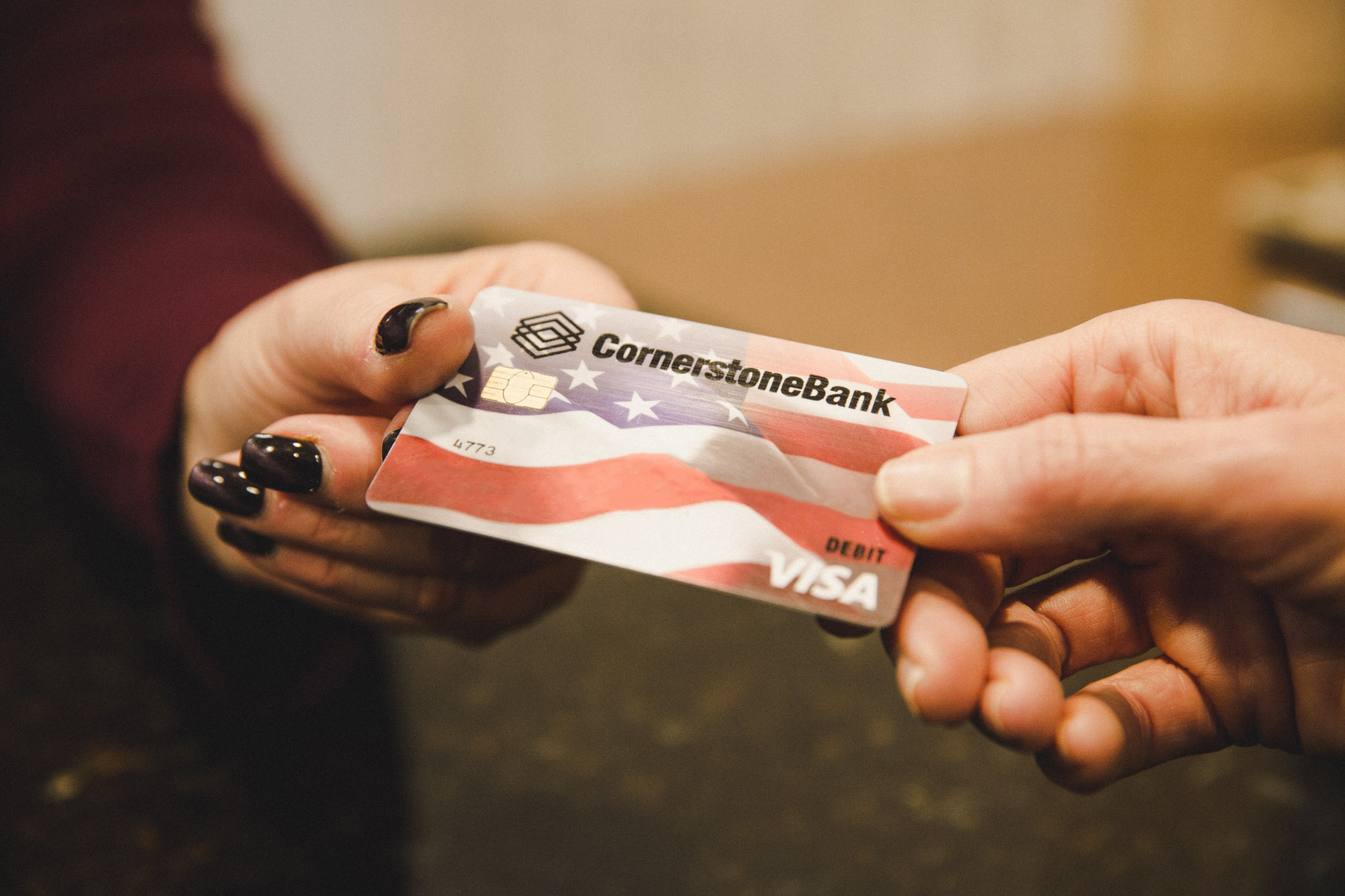
Understanding your banking options gives you the opportunity to become more financially aware and stable. When it comes to deposits, many people think about checking account deposits, but did you know there are different types of bank deposits beyond your checking account?
As a small, local bank in Kansas City, Cornerstone Bank acts as more than just a financial institution. For each customer, we’re their go-to resource for making their lives easier. We create helpful guides so you can take your banking to the next level without the extra hassle.
Types of bank deposits: Demand vs. Time
The word “deposit” often gets used as both an action and a noun. In general, a deposit is money you store in your bank account, which in some cases, may accrue interest as a bonus. Now that we have that covered, let’s go a little further.
With any type of bank deposit, you want to double check the security and interest. You should feel at ease when you trust a bank with your money, and every legitimate bank will keep your finances protected.
Beware of Frauds! Things a Legitimate Bank Will Never Ask →
All deposit accounts should be insured by the Federal Deposit Insurance Corporation (FDIC). That way, if some kind of bank failure occurs, you won’t lose all of your money. Before you put your money into anything, you should always verify that your bank has insurance. No matter what, Cornerstone Bank helps each customer obtain the maximum FDIC coverage.
Next, you want to think about how much interest you want to build on your account. One of the best parts about depositing money is the ability to earn more over time through interest. Some accounts offer little to no interest while others include higher rates. However, interest-bearing accounts often come with caveats, such as withdrawal restrictions and more. It’s best you do your research before making the final decision!
Deposits can be broken down into two main categories:
- Demand deposits
- Time deposits
Demand deposits: Any deposit you make that you can withdraw without notice is a demand deposit. In many cases, these are the type of deposits you will deal with the most; however, they often come with little to no interest. Within this category, there are three main types of demand deposits: (1) checking accounts, (2) savings accounts, and (3) money market accounts (we will go into these in more detail later).
Time deposits: Whenever a bank deposit comes with a fixed rate and term, it’s considered a time deposit. With time deposits, you aren’t allowed to withdraw money for a specific period of time or you would pay a penalty to get the money out. The penalty amount varies from institution to institution, so it’s always best to speak with your bank before making assumptions.
Certificates of deposits (CDs) are examples of time deposits. CDs allow you to add money and watch it accrue interest at a higher rate than a traditional savings account. Again, the caveat is you must keep the money in your bank to avoid a fee. Whenever the term ends, you can either withdraw your money or renew your account for another term. So if you think you may need to withdraw funds in the near future, it may be best to deposit your money in a savings account rather than a CD.
What’s the Difference Between a Demand Deposit and a Time Deposit? →
Types of Demand Deposits

Demand deposits are more common than time deposits, yet they can often be misunderstood. Remember, not all banks set up their accounts the same way. You always want to ask questions about deposit minimums, maintenance charges, interest rates, and more. Never assume how a bank operates; that could lead you to a tricky situation down the road.
Let’s revisit the types of demand deposit accounts:
- Checking accounts
- Savings accounts
- Money market accounts
1. Checking Accounts
You’re probably very familiar with a checking account. More than likely, you use your checking account for your day-to-day finances. With your checking account, you can withdraw money whenever you want and spend money however you want. It allows you easy access to your funds, and the best banks offer technologies so you can bank online, on your phone, at the ATM, and the office. Basically, versatility and freedom are some of the major benefits of your checking account.
Things to consider before opening a checking account and making deposits:
Can you afford the minimum opening deposit, minimum balance, and maintenance fees?
While a minimum opening deposit may be unavoidable for any checking account, be sure you know what it is and that you have enough cash on hand to meet the minimum.
Forbes considers a good checking account one without maintenance fees, and we agree! Additionally, at Cornerstone Bank, we do not require minimum daily balances on our personal checking accounts (excluding NOW and money market accounts). There are many banks that charge fees for this, so read the fine print when opening a new checking account.
How many transactions do you make a month?
After a certain number of times, your bank may charge you for withdrawing, depositing, or transferring your money between accounts (often in regards to savings account withdrawals).
If your bank has limited physical branches for withdrawals and deposits, find out which ATMs you can use without a fee, and if you will be responsible for any ATM fees you may incur at other ATMs.
What is Cornerstone Bank’s ATM Refund Policy? →
Is there easy mobile and online access to your account?
With technology, there is no reason to go to a physical bank location each time you need to deposit a check or complete a basic transaction.
You should be able to easily check on your account, pay bills, make deposits, and block a transaction or report your card lost from your computer and phone, regardless of your location.
2. Savings Accounts
A savings account allows you to safely store your money so you can build up a financial padding. Unlike checking accounts, savings accounts don’t come with as much freedom, and you will most likely have a withdrawal limit before a fee gets applied.
Keep in mind that a traditional savings account is not the same as a certificate of deposit.
Many accounts come with some interest, though interest rates won’t be as high as a CD.
How do I know whether I should get a savings account or a CD?
The main factor that comes into play here is why you are opening a savings account. Are you saving for your child’s college tuition? Do you want to jumpstart your retirement plan? Are you planning on making a large purchase down the road?
If you want your funds to be more “liquid,” meaning you can easily access your money at any time, a traditional personal savings account might be best. Traditional savings are a great way to put money aside without worrying about not having access to it for emergencies. Plus, the minimum opening balances are typically a lot lower than other savings options.
CDs are another great saving option, but they do require you to stay away from your money for a certain amount of time. These “terms” can range anywhere from a few months to a few years, depending on what you choose. As a general rule, the longer the term, the higher the interest rate. That means, the longer you keep your money in a CD without touching it, the more you’ll receive on your return. Once your CD matures, you can take out the full amount without worrying about incurring any fees.
We recommend CDs for people who have a little more leeway and stability to put money aside without fear of needing it in the near future. You should also expect a larger initial deposit amount than a personal savings account. For example, at Cornerstone Bank, our personal savings accounts require a $100 opening balance while our CDs require an $1,000 opening balance.
3. Money Market Accounts
A money market account often shares many of the same benefits as a savings account, but you can also have access to your money via checks and debit cards like a checking account. However, even though money market accounts are no longer subject to Regulation D, some banks may still opt to limit transactions and enact penalties. In addition, minimum deposits for money market accounts are generally higher than traditional savings accounts.
Learn more about the benefits of a money market account. →
How do I choose between a money market account and a savings account for my deposits?
Well, it depends on how many withdrawals you expect. The main difference between a savings account and a money market account is the freedom you have with your money once it’s been deposited. This can be a good or bad thing!
While money market accounts typically come with “extra” features to manage your money, such as check-writing features, this ease of access typically comes with a much lower interest rate. This means not only are you more likely to withdraw that money, but you’re also less likely to make as much in interest on the amount of money you do have. Depending on your current financial habits and discipline, you may want to consider one account over the other.
Cornerstone Bank can help you choose between types of bank deposits in Kansas City
More than anything, our bankers are here to help you with any of your financial needs. Since 2001, we have been a primary resource for our customers across the Kansas City metro and the country. We take pride in watching our customers thrive, no matter who you are.
We always put our customers first, and that means giving them the best experience banking has to offer. We don’t believe in basic banking; rather, we go above and beyond to help our customers make their money work for them.
For more information, visit our Overland Park office or give us a call at 913-239-8100 to let us know how we can help. Also try out our new online Deposit Tool to discover which type of bank deposits best suit your needs.


